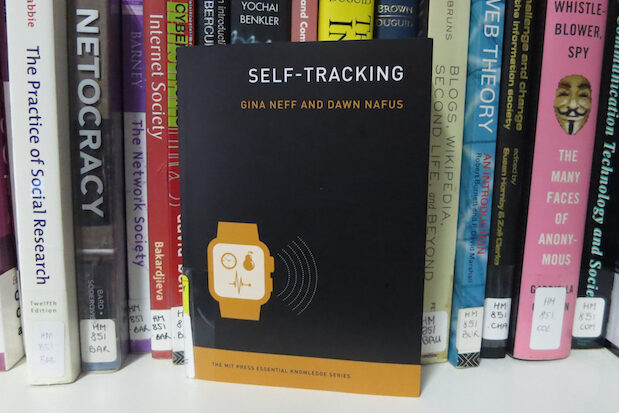Benjamin Franklin used to keep charts of his time spent and virtues lived up to. Today, we use technology to self-track: our hours slept, steps taken, calories consumed, medications administered. But what happens when we turn our everyday experience—in particular, health and wellness-related experience—into data? “Self-Tracking” (MIT Press) by Gina Neff and Dawn Nafus examines how people record, analyse, and reflect on this data—looking at the tools they use and the communities they become part of, and offering an introduction to the essential ideas and key challenges of using these technologies. In considering self-tracking as a social and cultural phenomenon, they describe not only the use of data as a kind of mirror of the self but also how this enables people to connect to, and learn from, others. They also consider what’s at stake: who wants our data and why, the practices of serious self-tracking enthusiasts, the design of commercial self-tracking technology, and how people are turning to self-tracking to fill gaps in the healthcare system. None of us can lead an entirely untracked life today, but in their book, Gina and Dawn show us how to use our data in a way that empowers and educates us. We caught up with Gina to explore the self-tracking movement: Ed.: Over one hundred million wearable sensors were shipped last year to help us gather data about our lives. Is the trend and market for personal health-monitoring devices ever-increasing, or are we seeing saturation of the device market and the things people might conceivably want to (pay to) monitor about themselves? Gina: By focusing on direct-to-consumer wearables and mobile apps for health and wellness in the US we see a lot of tech developed with very little focus on impact or efficacy. I think to some extent we’ve hit the trough in the ‘hype’ cycle, where the initial excitement over digital self-tracking is giving way to the hard and serious work…
What happens when we turn our everyday experience—in particular, health and wellness-related experience—into data?


